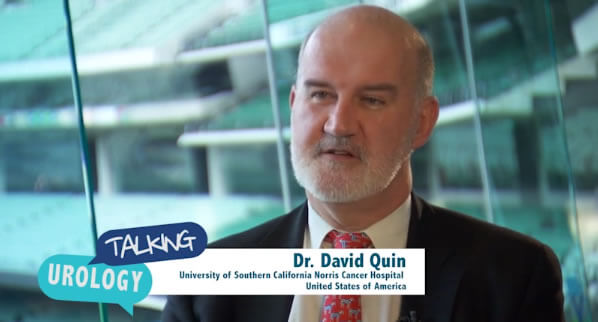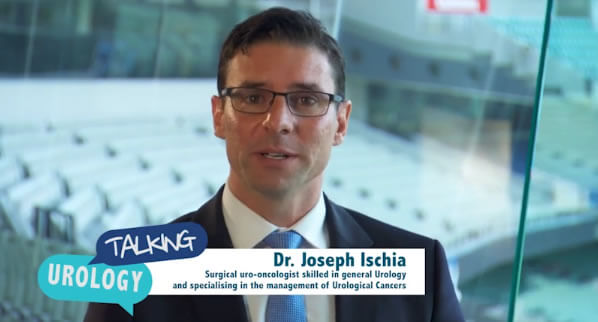USANZ 2017 – Dr Stephen Boorjian
Stephen Boorjian, MD is Professor of Urology at the Mayo Clinic in Rochester, Minnesota.
Dr Ischia talks to Dr Stephen Boorjian about the role of pelvic lymph node dissection with radical prostatectomy.
Talking Urology podcast transcript
USANZ 2017 Interviews – Stephen Boorjian
This is Talking Urology.
Joseph Ischia: Stephen Boorjian, a uro-oncologist in the Mayo Clinic in the United States was kind enough to come over to Australia and give us a talk on the pelvic lymph node dissection and prostate cancer: Why, When, and how far.
Dr. Stephen Boorjian: Thanks very much. It’s been an honor to be here. The topic of lymph nodes and prostate cancer remains quite controversial. The, I think, most important take home points that I want to leave people with about the issue of lymph nodes and prostate cancer are who to do a lymph node dissection on, how many lymph nodes we should be taking at the time of dissection, and what’s the benefit of taking out the lymph nodes. In terms of who to do a lymph node dissection on, I think that decision has to be risk stratified. There are a number of different ways of doing that stratification. A very straightforward one is the EAU intermediate-and high-risk patient population. I think if we want to go one more level of sophistication there’s a Briganti nomogram, It’s in European Urology that can be used to assess patient’s risk of lymph node metastasis. I think once the decision is made to do a lymph node dissection though I think critically importantly is that it’s an extended pelvic lymph node dissection. A good take home message is that there is limited value to a limited pelvic lymph node dissection for patients and in terms of what’s the benefit of a lymph node dissection, lymph node dissection to identify the presence of positive lymph nodes is helpful for risk stratification, it’s helpful for patient counselling, it’s helpful to identify candidates for adjuvant therapy such as hormones or radiation therapy, and there may in fact be an oncologic benefit to the complete surgical resection even of lymph node metastatic prostate cancer.
Joseph: Do you have a number on that Briganti nomogram where you draw the line?
Stephen: So the authors of that paper used a 5% threshold for the presence of lymph node metastatic disease and they found that if you use that threshold you would reduce the number of lymph node dissections by almost two thirds and you’d miss only 1.5% or so of positive nodes.
Joseph: And I know in your talk you did talk about the long-term biochemical recurrence free survival after removing a positive lymph node, what was that number?
Stephen: So in patients who’ve received no further therapies up to a quarter of patients with a positive lymph node may be continually free of disease long term.
Joseph: Fantastic, Stephen. Thank you very much for having a chat with us today.
Stephen: Sure, thanks for having me.










